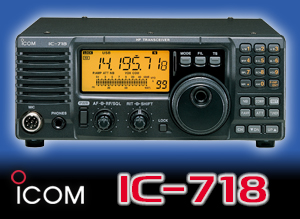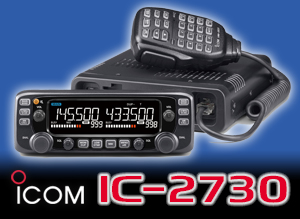Background
Background to the Syllabus 2019 update
 Consultations about the update to the syllabus took place during Spring 2017 and the new syllabus was published in August 2018. Here we recap the reasons for updating it, as well as summarising the main changes.
Consultations about the update to the syllabus took place during Spring 2017 and the new syllabus was published in August 2018. Here we recap the reasons for updating it, as well as summarising the main changes.
Since 2016, the RSGB has undertaken the examination of candidates to the standard required by Ofcom for the award of an amateur radio transmitting licence at three levels. The examinations process is reviewed annually by the Examinations Standards Committee, which is attended by an Ofcom representative.
In the light of the exam and progression statistics, Ofcom requested changes to the Intermediate level to smooth the transition from Foundation to Intermediate and then on to Full. It is perceived that the Intermediate level is not challenging enough for the privileges afforded at this level, as illustrated by a pass rate of 85%. This results in a large step up in required knowledge and understanding to progress to the Full level which is driven by International requirements (HAREC).
In devising Syllabus 2019, our aims were to:
- Refocus the three levels to smooth the transition from one level to the next
- Introduce some more modern technical topics resulting from 10+ years development in radio technology
- Remove some older topics; and to take account of changes in licence conditions and accepted operating practice
We should achieve these aims without increasing the level of difficulty of the (entry) Foundation level and maintain alignment between the Full level and HAREC so that UK amateurs could continue to benefit from reciprocal licensing.
To summarise the main changes:
-
- We have introduced software defined radio principles:
- At Foundation level, for candidates to be aware of the existence of this ‘new’ alternative radio architecture where software is used for RF modulation and demodulation
- At Intermediate level an overview of the SDR principles
- At Full level, the different approaches of SDR and the methods and problems of modulation and demodulation
- We have introduced software defined radio principles:
-
- We have removed some older/no longer relevant topics at all levels:
- Topics related to thermionic valves (tubes)
- Topics related to high voltage (except in relation to safety)
- Topics related to the physics of semiconductors
- We have removed some older/no longer relevant topics at all levels:
-
- We have added new material on safety, for example:
- At all levels, the safety aspects of using batteries (accounting for the new high discharge rate batteries available)
- At Full level, the use of risk assessment for portable operating and events
- We have added new material on safety, for example:
-
- In Syllabus 2019 we have used more explicit wording to, for example:
- Remove multiple learning points within topics (resulting in an apparent increase in learning points)
- Better define difficult areas, e.g. what is ‘broadcasting’
- Update and refine the definitions of topics that have presented queries in the past
- In Syllabus 2019 we have used more explicit wording to, for example:
-
- We have reflected changes to the licensing requirements since the previous syllabus, which has resulted in additions to the licensing conditions sections. For example, the requirements for:
- Five-year licence re-validation
- Identification of stations
- Use of secondary locators
- Detail of maritime operation
- We have reflected changes to the licensing requirements since the previous syllabus, which has resulted in additions to the licensing conditions sections. For example, the requirements for:
After these changes, the level of difficulty of Foundation as measured by the ratio of the number of points which must be ‘understood’ to the number of points to be ‘recalled’ is unchanged between the old and new syllabus. Furthermore, the ratio of operating points to technical points in also unchanged at 52:48.
The Intermediate level now has an increased focus on practical operating skills and construction. It is more difficult as some technical concepts have been moved down from Full, but it now sits more comfortably between Foundation and Full and, in the view of Ofcom, justifies the increased licence privileges obtained.
The Full level makes more use of concept demonstrations instead of just theory and the mathematical requirements are simplified. It remains broadly aligned with HAREC.
Tony Kent, G8PBH
Examinations Standards Committee Chair










